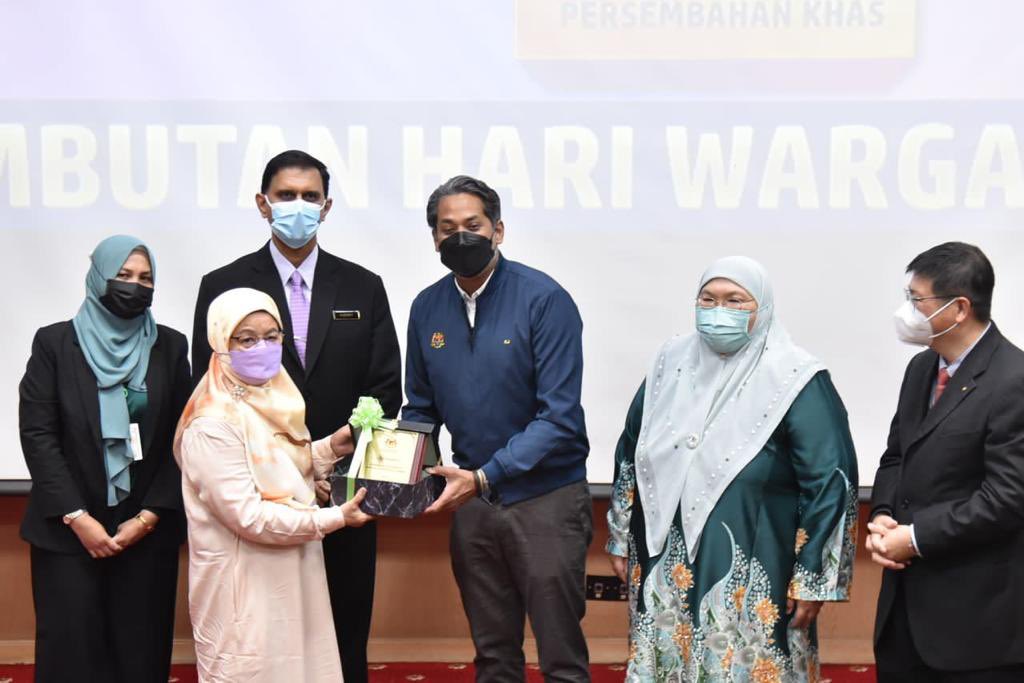KUALA LUMPUR, Oct 18 – Caretaker Health Minister Khairy Jamaluddin today called for more investment in elderly care to meet the demands of Malaysia’s ageing population.
As the country transitions towards an aged society by 2030, Khairy said there is a need to invest in training and equipment for geriatric care, and to have an integrated blueprint for ageing-related policies to map out a whole-of-nation strategy.
“If we don’t invest today, in training, in facilities, in equipment, for geriatric care, then we will be ill-prepared ten years from now. We have to start now,” Khairy said at the International Day of Older Persons celebration at Hospital Kuala Lumpur.
“And this is not limited to health services. Our preparations should not only focus on hospitals. It should cover all levels of society – from housing to transportation, income, livelihood, and savings.
“I’m shocked to see the statistics from EPF (Employees Provident Fund). Many don’t have enough savings to retire. So what should the government do to make sure that when people retire, if they retire at 60 – if they live as long as Dr Mahathir (Mohamad) – there’s another 40 years to live. Even if there is another 20 years to live, how are we supposed to earn then?
“We don’t want our elderly to work if they don’t have to because we want to look after them. With people having fewer children, the pressure (to care for the elderly) will be piled onto the government,” Khairy said.
Malaysia is expected to reach the status of an aged nation by 2030, with people over the age of 65 making up more than 14 per cent of the population, according to a previous joint statement from Health director-general Dr Noor Hisham Abdullah and World Health Organization (WHO) representative to Malaysia, Brunei Darussalam and Singapore Dr Rabindra Abeyasinghe.
Khairy said existing plans to address elderly care in Malaysia are currently lacking cohesion, with different ministries having individual plans.
Citing Singapore’s Action Plan for Successful Ageing, Khairy said the national blueprint included changes to the island nation’s physical infrastructure such as having specific housing units and policies for older persons that encourage seniors and their families to live closer for mutual care and support.
Other measures and improvements included more wheelchair-accessible buses, barrier-free access pathways, handrails, lifts and walkways at Mass Rapid Transit (MRT) stations, bus stops and interchanges.
“These are simple measures but if we don’t do it now, we won’t be able to provide the comfort for our elders to age gracefully,” Khairy said.
Khairy said there is also a need to strengthen the country’s primary health care services and to have more specialists in geriatric care.
“I was informed that only one individual opted to sub-specialise in geriatric care this year. We have to make geriatric care more attractive to young specialists. We must also make geriatric specialists the rockstars of the health care profession,” Khairy said.
“After all, they will be seeing a lot more patients in the coming years so it will be a very highly sought service.”
CodeBlue previously reported an acute shortage of doctors that are systematically trained in treating elderly patients, or in the field of geriatrics.
Malaysian Society of Geriatric Medicine (MSGM) data showed that Malaysia has a geriatrician ratio of 0.19 per 10,000 population, far below levels seen in developed countries such as the United Kingdom and Canada.
In Canada, the geriatrician ratio is 0.5 per 10,000 population, while in the United Kingdom, the proportion is slightly better at 0.85 per 10,000 population.
Caretaker Minister in the Prime Minister’s Department (Economy) Mustapa Mohamed at the National Conference on Ageing in Putrajaya yesterday said that the Economic Planning Unit (EPU) has been tasked to formulate a blueprint for Malaysia’s ageing nation.
The blueprint is expected to be completed by the end of 2023.
“This blueprint will provide a comprehensive roadmap and action plan to prepare ourselves for the challenges ahead,” Mustapa said.








